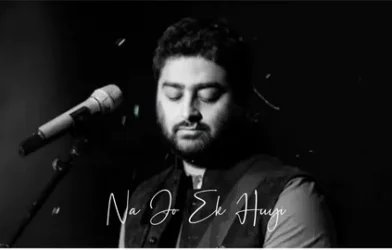In the grand symphony of jazz history, few names resonate as deeply and richly as Oscar V Peterson. Known for his lightning-fast fingers, expressive phrasing, and endless creativity, Peterson carved a place in music history that continues to inspire musicians, critics, and fans decades after his prime. His journey was not just one of talent, but one of resilience, evolution, and dedication to the art form he loved.
A Musical Prodigy in the Making
Oscar V Peterson’s story began in Montreal, Canada, where he was introduced to music at a young age. Originally trained on the trumpet, a bout with tuberculosis as a child shifted his focus to the piano. From that moment on, something special began to emerge. Influenced by jazz greats like Art Tatum, Nat King Cole, and others, he quickly developed a style that combined technical mastery with soulful depth.
By his teenage years, he was already performing on radio, his name buzzing around the jazz circles of North America. What set him apart was not just his speed or precision—it was the emotional texture behind every note. Whether upbeat or melancholic, his playing could communicate what words could not.
From Local Star to Global Stage
As he grew older, Oscar V Peterson’s reputation spread rapidly. It was a surprise performance on a live broadcast that caught the attention of famed jazz producer Norman Granz. That moment would change the course of his career. Granz introduced him to the world stage through Jazz at the Philharmonic, and soon Peterson was touring internationally, collaborating with legends such as Ella Fitzgerald, Louis Armstrong, and Stan Getz.
While some musicians fade into the background as sidemen, Peterson held his own alongside these giants. His trio format became iconic, usually including guitar and bass, offering a blend of rhythm and harmony that allowed him to soar. The balance of spontaneity and control in these performances left audiences in awe.
Style, Speed, and Sensitivity
Describing Peterson’s playing is like trying to capture lightning in words. His hands moved at incredible speed, but his music never felt rushed. There was clarity in every chord, and purpose behind every improvisation. He could play a standard ballad and make it sound entirely new, or take a fast-paced swing number and inject layers of complexity that remained melodic and accessible.
His use of rhythm was particularly notable. He treated the piano like a full orchestra, capable of delivering bass, harmony, and melody all at once. There was an elegance in his execution, and even his most explosive solos had structure and meaning.
Beyond Performance: Composer, Educator, Icon
While Peterson is best known for his live and recorded performances, his influence extends far beyond them. He was a composer of considerable range, crafting original works that combined jazz with classical, blues, and gospel elements. His suite “Hymn to Freedom,” inspired by the civil rights movement, is still considered one of his most powerful and socially significant pieces.
He was also a dedicated teacher, often advocating for music education and mentoring young pianists. His passion for the instrument wasn’t just about performance—it was about sharing the joy and discipline of music with others. Through interviews, lectures, and institutions named in his honor, his lessons continue to shape aspiring musicians across the world.
Trials and Triumphs
Like many artists of color working during the mid-20th century, Oscar V Peterson faced significant challenges. He encountered racism on and off stage, particularly in the United States, where segregation and discrimination often overshadowed his talent. Yet, he refused to let these experiences define or limit him.
He spoke out against inequality, both through his music and public statements, earning the respect of peers far beyond the jazz community. Even later in life, after suffering a stroke that limited the use of his left hand, Peterson returned to the stage, playing with one hand and continuing to deliver emotionally rich performances.
This perseverance was a reflection of his character—unshakable, sincere, and driven by love for his art.
A Lasting Presence in Modern Jazz
Even years after his passing, the legacy of Oscar V Peterson continues to thrive. His recordings are studied in classrooms, played in jazz clubs, and streamed by music lovers of all generations. Contemporary pianists often cite him as a key influence, not just for his technique, but for the honesty in his playing.
His awards and honors are numerous, but they only scratch the surface of what he represented. He was a bridge between jazz traditions and new interpretations, between musical excellence and human expression. Through his work, the piano became more than an instrument—it became a storyteller.
Conclusion
Oscar V Peterson was not just a pianist. He was a force of nature, a poet in sound, and a symbol of excellence in the world of music. His story is not only about talent, but also about dedication, resilience, and the quiet power of humility. For those who listen closely, every note he played still echoes—not just in the halls of jazz history, but in the hearts of those who believe in the transformative power of music.













Comments are closed